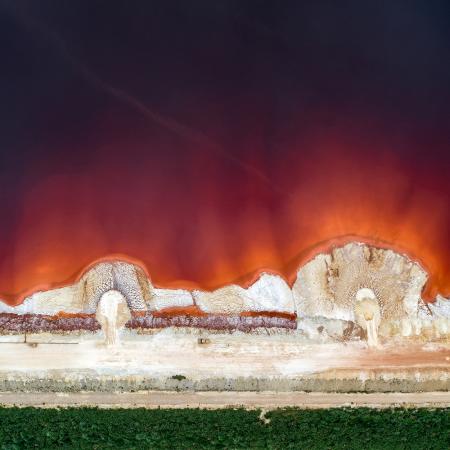"The Situation" II - Shanghai
...All things in the world are in balance...
YU Rongjun (Nick) 喻荣军 is the artistic director of Shanghai Dramatic Arts Centre. He has also worked extensively in film, and TV and radio series; his writing has been staged and published in many languages. He has had fellowships for cultural exchange programs in the United States, at the Royal Court Theatre (UK), and most recently at the Likhachev Foundation in Russia.
In China, things suddenly become extremely serious before the Spring Festival, which reminds us of SARS in 2003. Although 17 years have passed, it is still fresh for the Chinese people. Then, the news of Wuhan's closure shocked everyone in China. A big city with a population of more than 11 million was sealed, which was unprecedented during the SARS period. It's terrified. The Spring Festival is traditionally a time for the family to get together, but now it became tense. I had planned to go back to Anhui to accompany my mother. She had been hospitalized for more than a year because of a cerebral infarction. But when I got to the high-speed rail, I found that everyone in the carriage was wearing masks, and the atmosphere was anxious. The hospital was even more panic-stricken, and many clinics could not buy masks. The epidemic was developing every day. The situation in Wuhan were getting worse and worse. Everyone stayed at home and isolated. From Wuhan to Shanghai, even in China's rural areas, people stayed at home, the outdoors was empty. All the performances have been cancelled and when the theatre will reopen is unknown. After two weeks in my hometown, I went back to Shanghai. Because my family was away, I lived at home alone for nearly a month. This period of time is impactful. Every day, I pay attention to when the performance can start and when it can function normally, but it seems like a long way to go. It seems that people are also beginning to adapt to a life of staying at home. Children can't go to school either. They can only stay at home and have online classes. But people are also slowly accepting it. Suddenly, we find that people are really very adaptable species. Wearing masks has become normal; the relationship between people has become a little alienated, but people have become more concerned about their families, as if a kind of return. to older ways of living.
The impact of this epidemic on us is multifaceted, which may greatly affect our living habits in the future. When China's situation began to improve, the situation around the world began to get more serious, which is also very disturbing. It's sad to see that the number of people infected and the number of deaths rise every day, but behind each figure is a living person. At present, the epidemic is not over, but there will always be an end. I hope that all people can unite to face the epidemic together, and that everyone can take care of themselves and be safer.
The epidemic also gives us the opportunity to think about the future.
All things in the world are in a balance. This catastrophe makes us understand that in front of nature, people should have a feeling of awe, learn to live in peace with nature, and that, in front of disasters, people should unite and help each other. For disasters will eventually passbut , we will face new ones in the future. In fact, disasters teach us how to face the future and life better There are dangers everywhere, but we cannot avoid risk. What is most worth protecting is people's confidence in life and future, which should be our greatest harvest from this time.
Spring 2020
Vol 10 No 3
"The Situation" - II
- Editorial
- Alice Yousef (Jerusalem)
- Minae Mizumura (Tokyo)
- Chandrahas Choudhury (New Delhi)
- Peter Kimani (Nairobi)
- Jacqueline Goldberg (Caracas)
- Andrea Hirata (Sumatra)
- Mabrouck Rachedi (Paris)
- Kavery Nambisan (Kodava)
- Ameena Hussein (Colombo)
- Helon Habila (Fairfax, VA)
- Amira Gehanne Khalfallah (Istanbul/Algiers)
- Marjan Strojan (Ljubljana)
- Med Magani (Algiers)
- Beaudelaine Pierre (Minneapolis/Port-au-Prince)
- Mohib Zegham (Kabul)
- Usha K R (Bengaluru)
- Nick Yu (Shanghai)
- Ksenia Dragunskaya (rural Russia)
- Haifa Abu-Al Nadi (Amman)
- Nikola Madzirov (Strumica)
- Soheil Najm (Baghdad)
- Antoinette Tidjani Alou (Paris/Niamey)
- Sabata-Mpho Mokae (Kimberley)
- Khaled Khalifa (Latakia)



